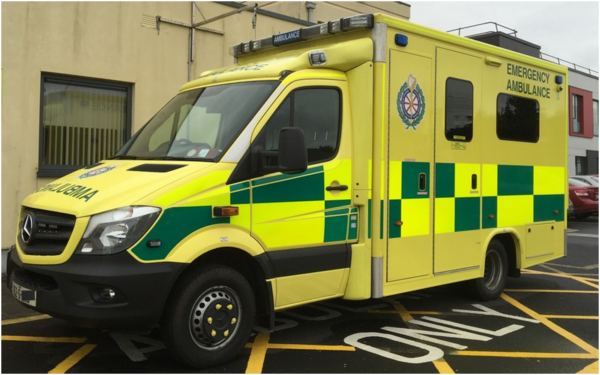NATIONAL ambulance personnel from Clare were in Northern Ireland carrying out Covid-19 testing while an ambulance was sent 175km from Galway to provide treatment to an injured motorcyclist, a local Dáil Deputy has claimed.
The lack of ambulance drivers to deal with serious incidents was highlighted in the Dáil recently by Deputy Michael McNamara, who expressed concern about the dispatch of an ambulance from the Carraroe base in County Galway to an incident in Kilkee, two hours away
A motorcyclist was hospitalised following the incident which occurred in Kilkee shortly after 4.30pm on Sunday, October 10. The collision, which happened on Gratten Street in the West Clare resort, involved a car and a motorcycle.
It is believed there was no National Ambulance Service (NAS) resource available in Clare or Limerick at the time, which resulted in the requirement to draft in an ambulance from Galway to provide the necessary medical assistance.
Firefighters from nearby Kilkee fire station were requested to attend the scene while a local off-duty paramedic also offered assistance until NAS personnel arrived.
Speaking in the Dáil, Deputy Michael McNamara highlighted the Kilkee incident and complained about a “major shortage of ambulance drivers”.
“Meanwhile, paramedics who are being trained in the University of Limerick are not accepted by the National Ambulance Service, NAS, and NAS personnel from County Clare were in Northern Ireland carrying out Covid testing.”
“I readily accept that Covid poses a threat to health and life, but ambulances are sent to threats to health and life and we do not have enough ambulance drivers.
“The introduction of the European standard, under which an ambulance can only take one person instead of two, was never accompanied by an increase in the number of ambulances.
The Tánaiste spent time in the Department of Health as Minister. What is being, and will be, done about this shortage of ambulances across the country?
After an ambulance stationed in Connemara was sent from Galway to a road traffic collision in Kilkee at the weekend, I asked what is being doing to increase capacity and response times. pic.twitter.com/lKmZ7zxeih
— Michael McNamara MEP (@McNamaraMEP) October 14, 2021
“Ambulances are being deployed two or three hours from their bases because of the shortage,” he said.
The Tánaiste, Leo Varadkar, said there have been many changes to and real reforms of the NAS and its service model in recent years.
Deputy Varadkar explained the service works more like a fleet now than a series of bases.
“Often, the ambulance that is nearest to the person is the one that is sent regardless of the distance from the base.
“The Budget provides an additional €8.3 million for investment in the NAS. That will continue to develop and improve the service and also extend the hear and treat model, which is used successfully in other countries.”
Recently, Senator Timmy Dooley voiced concern after it emerged it took more than five hours for an ambulance to arrive in East Clare despite a number of calls for medical assistance by a doctor in Tulla.
Responding to Clare Champion queries, the NAS outlined in recent months, health services, including Emergency Departments and the NAS, continue to experience a surge in demand for services at a time when staff are also working hard to support Covid-19 related swabbing and vaccinations. At this time, the level of demand now exceeds the levels experienced in 2019, pre pandemic.
As demand can exceed available resources, 999 calls are clinically triaged and prioritised to ensure that those patients with life threatening injuries or conditions receive the fastest response possible. If a 999 call is not time critical, then during busy periods, these calls will wait longer for a response. Thankfully, it remains the case that the majority of 999 calls do not relate to life-threatening emergencies.
For those calls that are not life threatening or clinically serious, the HSE encourages callers to consider other options such as GPs, minor injury units, pharmacists or self care. If people call 999 and their call is triaged as not life-threatening or serious, the NAS will respond as soon as it can.
By Dan Danaher

